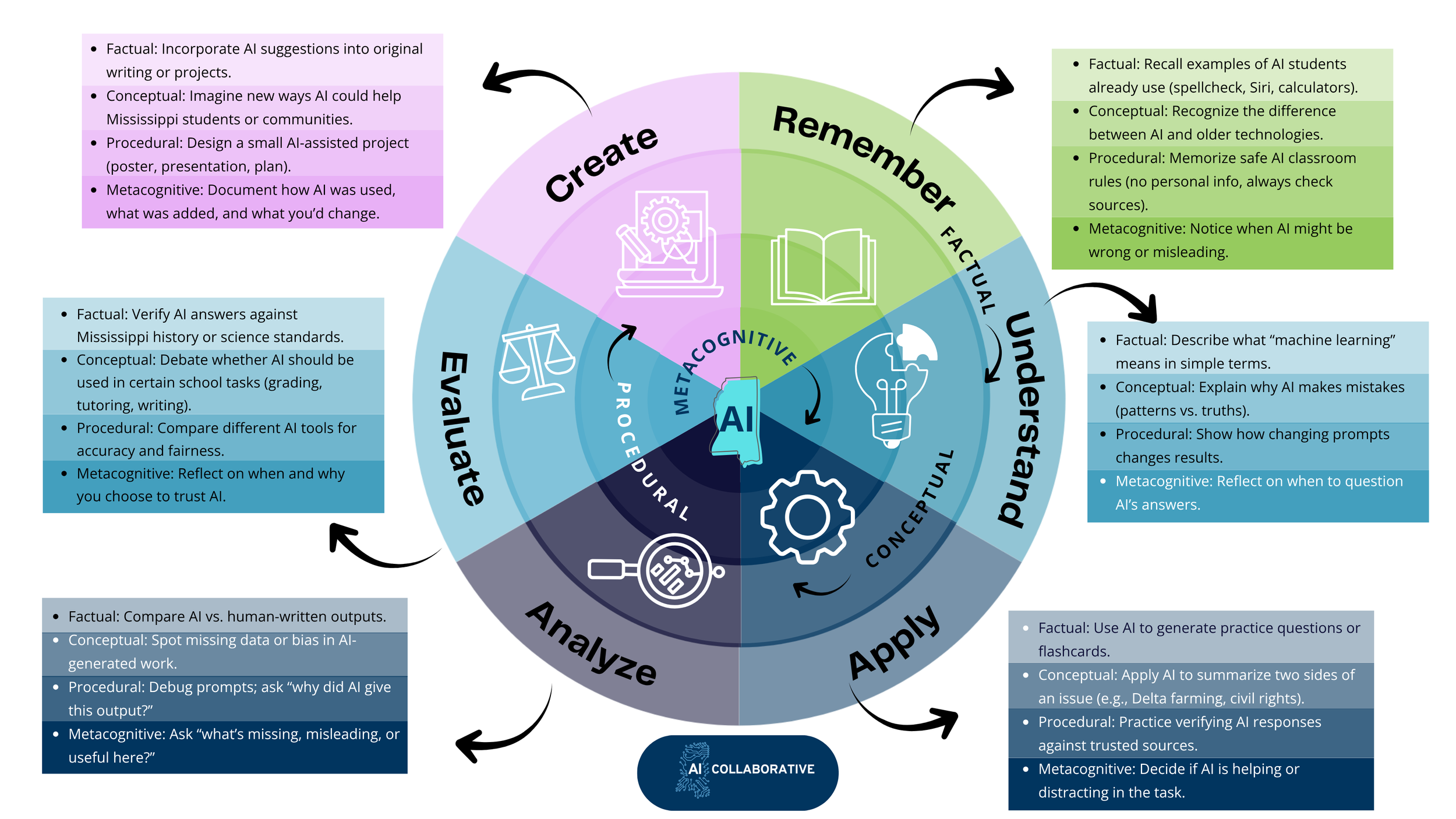
Greenville College and Career Fair
Educator Resources
Artificial intelligence (AI) is no longer just something we hear about in the news. It is already shaping the way work is done across Mississippi and the nation.
For students in the Delta, this might mean the careers they are preparing for will look different than they did even a few years ago.
Colleges, employers, and community organizations are paying close attention to how AI changes the skills that matter most. As educators, you play a key role in helping students understand not just how to use AI, but how to grow into careers where human judgment, creativity, and ethics remain essential.
What is AI?
Artificial Intelligence (AI) is when computers are trained to recognize patterns, make predictions, and assist with tasks we usually expect people to do. Everyday examples include voice assistants, translation apps, recommendation systems, and chat tools.
AI is not magic. It’s built on data and rules, and it can be wrong. Students must learn how to use AI responsibly, verify information, and add their own judgment and creativity.
Rethinking Bloom’s Taxonomy in the Age of AI
Educators have long used Bloom’s Taxonomy (Remember → Understand → Apply → Analyze → Evaluate → Create) to describe different levels of learning.
But in the age of AI, these levels don’t always happen in a strict ladder. Skills overlap. Students need to move between them flexibly.
Our Mississippi AI-Ready Model:
Remember & Understand → Recognize what AI is (and isn’t) and why it can be wrong.
Apply → Use tools carefully for specific classroom tasks.
Analyze → Break down AI outputs, check bias, and find missing information.
Evaluate → Decide when AI is helpful and when human judgment must lead.
Create → Design projects, solutions, or presentations using both AI support and their own originality.
This approach aligns with Mississippi’s digital literacy and critical thinking standards and prepares students for both college and careers.
The K–12 AI Collaborative Model is designed as an iterative framework that introduces students to artificial intelligence concepts in age-appropriate, inquiry-driven ways, while embedding ethical reflection and digital citizenship throughout.
At the earliest levels (K–2), students begin by recognizing AI in the world around them and discussing rules for responsible technology use. By upper elementary (3–5), they engage with data and instructions, learning how AI relies on patterns and prompts.
Middle grades (6–8) emphasize critical thinking, requiring students to fact-check AI outputs and design their own responsible applications. High school students (9–12) are challenged to analyze the boundaries between human and machine tasks, and to map out workflows that account for ethics, bias, and social impact.
Resources for Educators
Quick Classroom Activities
K–2: “AI or Not?” picture sort • Class “Robot Rules” poster
3–5: Data Detective charts • Prompt Remix
6–8: Fact-Check Relay • Design a Helpful Tool
9–12: Task Analysis: AI vs Human • Responsible AI Workflow
Classroom Guidelines (to post on your wall)
Protect privacy (no personal info).
Verify everything (AI ≠ final answer).
Be original (your words matter).
Be fair (avoid harmful stereotypes).
Ask when unsure (get adult guidance).
Verification & Originality Checklist (student handout)
I know my purpose for using AI.
I removed personal info.
I checked facts with 2+ sources.
I revised into my own words.
I cited when needed.
I wrote one sentence on what I’d do differently next time.
Ready to Explore?
Download AI tools for College and Career Readiness Handout
Together, we can prepare Mississippi students to use AI wisely, creatively, and responsibly.
Continue your journey with our educator track in the AI-thon!


